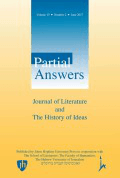
Partial Answers-Journal of Literature and the History of Ideas
Scope & Guideline
Fostering Innovative Research in Cultural Studies
Introduction
Aims and Scopes
- Interdisciplinary Literary Studies:
The journal focuses on a broad range of literature, exploring texts through various disciplinary lenses such as philosophy, history, and cultural studies. - Historical Contextualization:
It emphasizes the importance of historical context in understanding literary works, addressing how different eras shape and influence narrative forms and themes. - Critical Theory and Methodology:
The journal showcases a variety of critical approaches, including feminist, postcolonial, and psychoanalytic theories, contributing to the evolution of literary criticism. - Focus on Marginalized Voices:
There is a consistent emphasis on exploring marginalized perspectives within literature, including gender, race, and cultural identities. - Narrative Theory and Form:
The journal frequently engages with narrative structures, examining how different storytelling techniques affect interpretation and meaning.
Trending and Emerging
- Posthumanism and Technology:
There is an increasing exploration of posthumanism and the impact of technology on literature, reflecting contemporary concerns about identity and existence in a digital age. - Ecocriticism and Environmental Narratives:
A growing interest in ecocritical perspectives is evident, with discussions around the representation of nature and ecological concerns in literature. - Cultural Trauma and Memory Studies:
Recent papers delve into the narratives of trauma and collective memory, examining how literature reflects and shapes cultural understandings of historical events. - Interreligious Dialogue and Textual Interpretation:
Emerging themes include the exploration of interreligious dialogue, particularly in relation to ancient texts and their modern interpretations, highlighting a blend of literary and theological studies. - Narrative Ethics and Responsibility:
There is a notable trend towards examining ethical dimensions of narratives, focusing on how storytelling can engage with moral questions and social responsibilities.
Declining or Waning
- Traditional Literary Canon:
There is a noticeable decline in papers focusing solely on the traditional literary canon, as the journal increasingly engages with contemporary and diverse literary voices. - Strict Genre Classifications:
The rigid boundaries between literary genres are waning, with fewer papers dedicated to genre-specific studies, indicating a move towards more fluid and hybrid forms of analysis. - Historical Biographies of Authors:
Less emphasis is placed on biographical studies of authors, as the journal shifts towards thematic and contextual analyses rather than individual authorial narratives. - Static Interpretative Frameworks:
There is a move away from static interpretive frameworks, as the journal embraces more dynamic and interdisciplinary approaches that challenge traditional readings. - Focus on National Literatures:
The focus on specific national literatures appears to be declining in favor of transnational and global literary studies that reflect a more interconnected view of literature.
Similar Journals

Materiali e Discussioni per l Analisi dei Testi Classici
Exploring the Depths of Classical LiteratureMateriali e Discussioni per l'Analisi dei Testi Classici is a distinguished academic journal published by Fabrizio Serra Editore that focuses on the rich field of Classics and Literature, serving as a vital platform for scholarly discourse and research. Featuring ISSN 0392-6338 and E-ISSN 1724-1693, this journal has been actively publishing since 2009, with a dedicated effort to analyze classical texts and foster critical discussions among academics and students alike. Although the journal operates without an open access model, it is recognized for its significant contributions, evidenced by its ranking in the third quartile (Q3) in both the Classics and Literature categories as of 2023. This places it among the notable outlets for literary and classical scholarship, with Scopus ranks highlighting its ongoing influence in these fields. Based in the heart of Italy, in Pisa, the journal not only enriches the academic community but also provides an essential resource for those engaged in the profound study of classical literature, inviting contributions that challenge and expand current knowledge and methodologies.
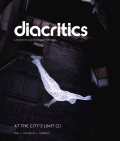
DIACRITICS-A REVIEW OF CONTEMPORARY CRITICISM
Advancing Critical Discourse in Contemporary LiteratureWelcome to DIACRITICS: A Review of Contemporary Criticism, a distinguished journal published by Johns Hopkins University Press, specializing in the interdisciplinary fields of literature and literary theory. With an impressive impact factor that places it in the top quartile of its category, DIACRITICS is recognized for its rigorous scholarship and critical insights, ranking #93 out of 1106 journals in Arts and Humanities Literature and Literary Theory according to Scopus. This journal, which has been continually publishing significant work since its inception, focuses on contemporary literary criticism, engaging scholars, professionals, and students in thoughtful discourse on relevant issues and transformative trends in the field. Although not open access, it provides a rich resource for those seeking to deepen their understanding of critical theory and literature. We invite you to explore the innovative perspectives and scholarly contributions that DIACRITICS offers, ensuring a vibrant exchange of ideas and fostering academic excellence.
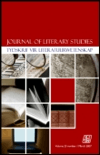
Journal of Literary Studies
Fostering interdisciplinary insights in literature.Journal of Literary Studies, published by UNISA PRESS, is a premier open access journal dedicated to advancing the field of literature and literary theory. With its ISSN 0256-4718 and E-ISSN 1753-5387, the journal has established itself as a leading platform for innovative research since its inception in 1985, with a notable convergence period running through to 2024. Recognized in the Q1 quartile of literature and literary theory, the journal ranks impressively at #236 out of 1106 in its category according to Scopus, highlighting its impact in the arts and humanities with a percentile rank of 78th. The journal's open access model, adopted in 2022, reflects its commitment to accessibility and dissemination of knowledge globally, making it an essential resource for researchers, academics, and students alike. With an editorial focus on interdisciplinary approaches and contemporary critical discourse, the Journal of Literary Studies serves as a vital vessel for the exchange of ideas and scholarly dialogue in the intricate landscape of literary studies.
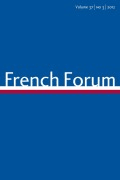
FRENCH FORUM
Celebrating the Richness of French Literature and PerformanceFRENCH FORUM is a distinguished journal published by the Department of Romance Languages at the University of Pennsylvania, focusing on the rich tapestry of literature, visual arts, and performing arts within the French-speaking world. With an ISSN of 0098-9355 and an E-ISSN of 1534-1836, the journal has evolved since its inception, now covering diverse topics from 2002 to 2023. Although currently ranked in the fourth quartile in both Literature and Literary Theory and Visual Arts and Performing Arts, it provides a platform for emerging voices and critical discussions, making it an essential resource for scholars and practitioners alike. FRENCH FORUM aims to cultivate interdisciplinary dialogue, offering insights that resonate with contemporary cultural and literary studies while supporting the exploration of both canonical and avant-garde works. Despite its open access status, the journal continues to be a relevant player in academia, inviting contributions that challenge, shape, and redefine the landscape of French studies.
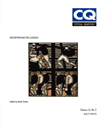
CRITICAL QUARTERLY
Connecting scholars through rigorous analysis and diverse perspectives.CRITICAL QUARTERLY, published by Wiley, is a distinguished journal that has been at the forefront of critical discourse since its inception in 1959. With an ISSN of 0011-1562 and an E-ISSN of 1467-8705, it serves as a vital resource in the fields of Cultural Studies and Literature and Literary Theory, demonstrating a commendable influence as evidenced by its placement in Q3 and Q2 quartiles respectively. The journal's impact factor, while not explicitly listed, is inferred from its reputable standing, with Scopus rankings placing it within the 54th and 29th percentiles in its respective categories. By offering a platform for rigorous analysis and diverse theoretical perspectives, CRITICAL QUARTERLY aims to foster scholarly dialogue and advance the study of literature and culture. Situated in the United States, the journal's commitment to academic excellence makes it an invaluable asset for researchers, professionals, and students dedicated to the exploration of critical theory and cultural critique.
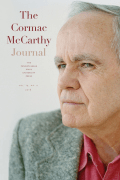
Cormac McCarthy Journal
Fostering Critical Dialogues on McCarthy's ImpactWelcome to the Cormac McCarthy Journal, a distinguished publication dedicated to the scholarly exploration of the works and influence of acclaimed author Cormac McCarthy. Published by Penn State University Press, this journal serves as a vital platform for researchers, academics, and literary enthusiasts who seek to engage in critical discussions and analyses of McCarthy’s profound literary contributions. While the journal currently operates under traditional access, it promises rigorous peer-reviewed articles that interrogate thematic complexities, narrative techniques, and cultural impacts within McCarthy's oeuvre. As the interest in American literature continues to flourish, the Cormac McCarthy Journal stands out by fostering an academic community dedicated to understanding the nuances of one of the most significant contemporary writers. Scholars are encouraged to contribute to this growing field of study, ensuring that new insights into McCarthy's work are shared and disseminated for both current and future generations of literary scholars and students.
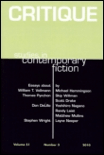
CRITIQUE-STUDIES IN CONTEMPORARY FICTION
Illuminating Interdisciplinary Dialogues in LiteratureCRITIQUE: STUDIES IN CONTEMPORARY FICTION is a premier scholarly journal published by Routledge Journals, Taylor & Francis Ltd, dedicated to advancing our understanding of contemporary fiction within the broader spectrum of literature and literary theory. With an esteemed reputation in the academic community, this journal has achieved a remarkable impact factor and ranks in the Q1 category in Literature and Literary Theory, showcasing its influence and credibility, as reflected in its Scopus Rank of #142 out of 1,106 and a notable 87th percentile. The journal invites researchers, scholars, and students to engage with innovative perspectives, critical analysis, and interdisciplinary exploration of contemporary narratives. Published continuously since 1956, CRITIQUE serves as a vital resource for those seeking to understand the complexities of modern literature, and it remains committed to fostering dialogue around diverse textual and cultural contexts.
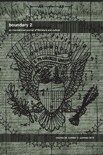
BOUNDARY 2-AN INTERNATIONAL JOURNAL OF LITERATURE AND CULTURE
Navigating the Complexities of Cultural NarrativesBOUNDARY 2: An International Journal of Literature and Culture, published by Duke University Press, stands as a pivotal platform for interdisciplinary discourse at the intersection of literature, culture, history, and the social sciences. With an ISSN of 0190-3659 and an E-ISSN of 1527-2141, this journal uniquely addresses the complexities of cultural narratives and theoretical frameworks from 2002 to the present. Although it is not an open-access publication, its rigorous scholarship and critical insights have positioned it within esteemed quartiles: Q3 in Cultural Studies, Q2 in History and Literature and Literary Theory, and Q4 in Sociology and Political Science for 2023. As the academic landscape evolves, BOUNDARY 2 continues to challenge conventional paradigms, making it an essential resource for researchers, professionals, and students eager to explore contemporary issues in literature and culture.
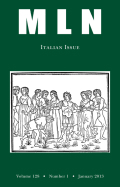
MLN
Advancing Scholarly Discourse in Linguistics and Literary TheoryMLN, published by Johns Hopkins University Press, is a leading academic journal that spans the fields of Linguistics, Literature, and Literary Theory. Serving as a crucial platform for scholarly discourse, MLN has established itself with a substantial impact factor and a dedicated readership, particularly recognized in its category quartiles—ranking Q3 in Linguistics and Language, and Q2 in Literature and Literary Theory as of 2023. The journal provides a vital venue for innovative research and discussions that push the boundaries of language studies and literary analysis, fostering an engaged community among researchers, students, and professionals. Although not open access, MLN maintains its commitment to academic rigor and accessibility in the United States from its base in Baltimore, Maryland, offering valuable insights and significant contributions from converged years spanning 2002 to 2024. With a competitive standing in Scopus rankings, it continues to be an essential resource for those looking to deepen their understanding of the dynamic intersections between language and literature.

CLIO-A JOURNAL OF LITERATURE HISTORY AND THE PHILOSOPHY OF HISTORY
Bridging Disciplines: Where Literature Meets PhilosophyCLIO: A Journal of Literature, History, and the Philosophy of History, published by Indiana University-Purdue University, serves as a pivotal platform for scholars and students alike. Since its inception, this journal has offered a unique convergence of literary analysis, historical context, and philosophical inquiry, creating a rich dialogue across disciplines. With an ISSN of 0884-2043, CLIO has evolved alongside the academic landscape from its early days in the late 20th century, reflecting the changing paradigms of literature, history, and philosophical thought. Although currently categorized in the Q4 quartile across its three relevant fields—History, Literature and Literary Theory, and Philosophy—it continues to invite contributions that challenge traditional boundaries and foster interdisciplinary research. While not currently an Open Access journal, CLIO remains an essential resource for those invested in the critical exploration of historical narratives and literary expressions, appealing to all who seek to understand the intricate weave between past and present.